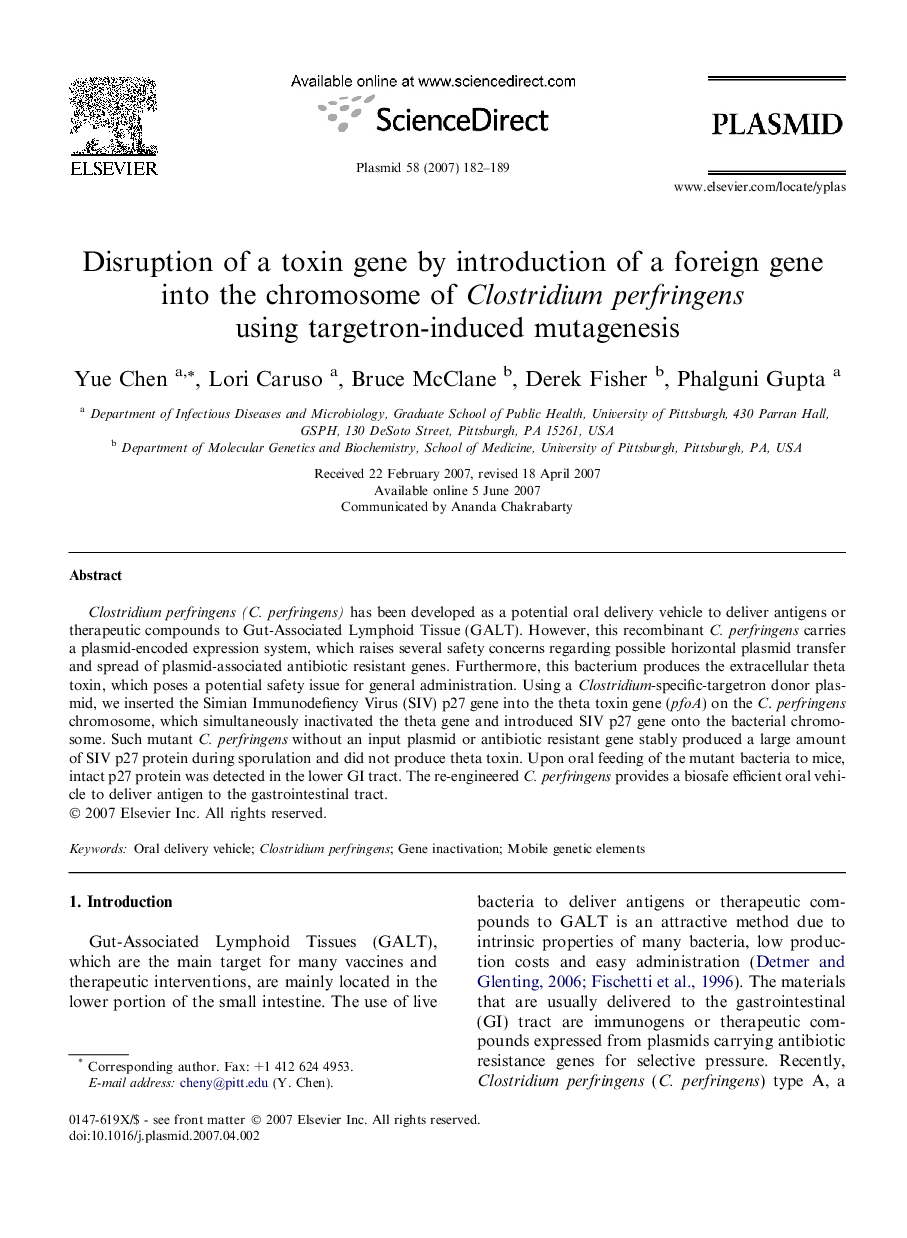| Article ID | Journal | Published Year | Pages | File Type |
|---|---|---|---|---|
| 2824408 | Plasmid | 2007 | 8 Pages |
Clostridium perfringens (C. perfringens) has been developed as a potential oral delivery vehicle to deliver antigens or therapeutic compounds to Gut-Associated Lymphoid Tissue (GALT). However, this recombinant C. perfringens carries a plasmid-encoded expression system, which raises several safety concerns regarding possible horizontal plasmid transfer and spread of plasmid-associated antibiotic resistant genes. Furthermore, this bacterium produces the extracellular theta toxin, which poses a potential safety issue for general administration. Using a Clostridium-specific-targetron donor plasmid, we inserted the Simian Immunodefiency Virus (SIV) p27 gene into the theta toxin gene (pfoA) on the C. perfringens chromosome, which simultaneously inactivated the theta gene and introduced SIV p27 gene onto the bacterial chromosome. Such mutant C. perfringens without an input plasmid or antibiotic resistant gene stably produced a large amount of SIV p27 protein during sporulation and did not produce theta toxin. Upon oral feeding of the mutant bacteria to mice, intact p27 protein was detected in the lower GI tract. The re-engineered C. perfringens provides a biosafe efficient oral vehicle to deliver antigen to the gastrointestinal tract.
